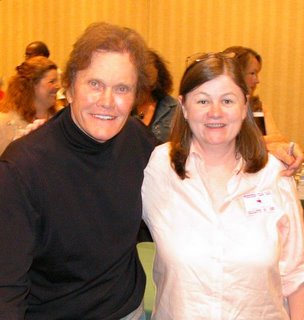As I looked up I saw a love affair in the midst of all the horror. A young man helped a girl to the window sill. Then he held her out, deliberately away from the building and let her drop. He seemed cool and calculating. He held out a second girl the same way and let her drop. Then he held out a third girl who did not resist. I noticed that. They were as unresisting as if he were helping them onto a streetcar instead of into eternity. Undoubtedly he saw that a terrible death awaited them in the flames, and his was only a terrible chivalry.
Then came the love amid the flames. He brought another girl to the window. Those of us who were looking saw her put her arms about him and kiss him. Then he held her out into space and dropped her. But quick as a flash he was on the window sill himself. His coat fluttered upward—the air filled his trouser legs. I could see that he wore tan shoes and hose. His hat remained on his head.
Thud—dead, thud—dead—together they went into eternity. I saw his face before they covered it. You could see in it that he was a real man. He had done his best.

In Katharine Weber's hands Esther Gottesfeld, the last living survivor of the Triangle Shirtwaist Fire, is the sister of the girl seen being kissed before she's dropped to her death. Esther, engaged to the man who drops her, is also carrying his baby. She manages to escape from the conflagration on the ninth floor by following one of the sweatshop's bosses out a back door--a door usually kept locked and that the boss attempts to lock behind him as he makes his escape. For the rest of her life--she makes it to 106--Esther will be asked to relay the horrible events that occurred during the fire; both discrepancies and repetitions in her testimony will be noted and studied for import or reason for discounting.
Shortly after her death, Esther's granddaughter Rebecca, whom she raised, will be approached by a historian who's convinced that Esther's story contains quite a bit of omission and fabrication. Ruth Zion wants Rebecca to provide her with any scrap of information that she can remember being told about the fire and wants particularly to know the contents of Esther's safe deposit box. A genetics counselor at the Yale School of Medicine, long term partner to renowned composer George Botkin, Rebecca is both repelled by Ruth's manner and attracted by her interest in her grandmother's life; it certainly makes a welcome break from the depressing nature of her professional life. George must caution her that what Ruth will do with any disclosed information may not be in Esther's best interests.
My reading m. o. this summer has unfortunately been to read the first chapter of a book, tell myself oh yes I want to read this, then cast the book aside, thinking but not just now. I put the blame squarely on myself, not the reading material, but I was thrilled when I found myself continuing on past the opening pages of Triangle--finally, a book I want to read now. I had a pretty good suspicion by the end of the first chapter of what the twist in Esther's story would turn out to be, but because the characters spend as much time pondering music and genetic diseases as they do the Triangle Shirtwaist Fire, and because the writing is simply gorgeous, I didn't mind having my suspicion be born out at the end.
I'm hoping Triangle has broken my dry spell; I'll be starting Scott Simon's Pretty Birds this evening.















